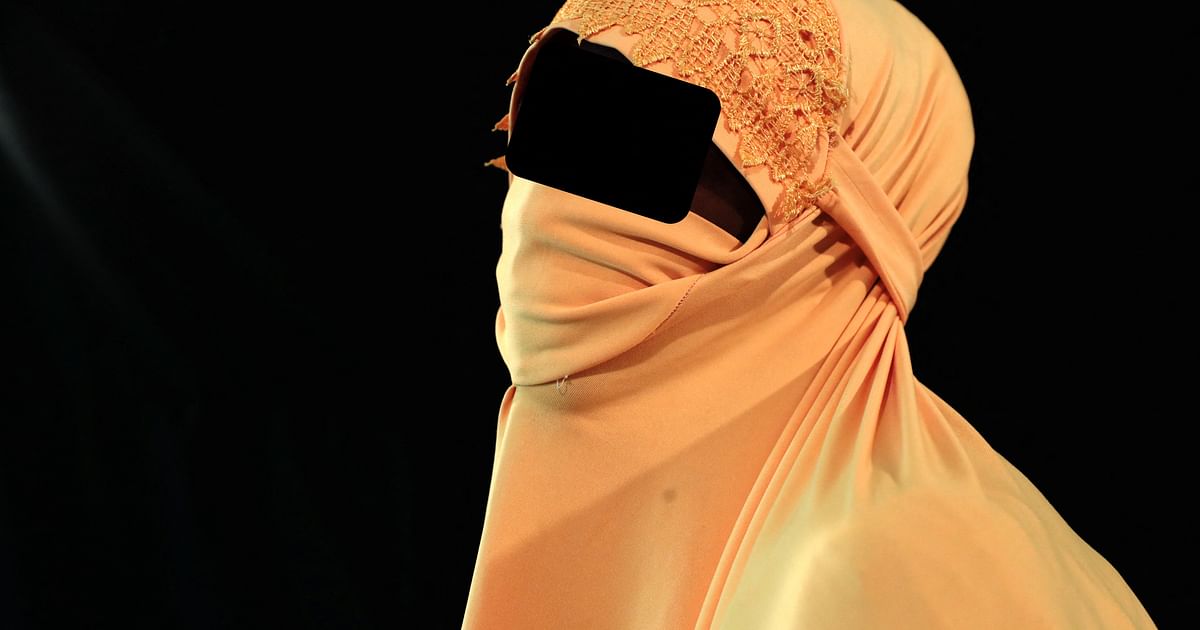no trace of him
The army moved the women and children to a nearby camp in the town of Madagali – a cluster of five army tents and one thatched hut, she said. There he was interrogated and medical checkup done. The jawans took his blood and urine samples.
The next day, he tells Ayesha that she has a vaginal infection. She said they injected two vials of the drug into her buttocks, without telling her what it was, and gave her a set of pills. An hour later, she said, she was in excruciating pain and started bleeding profusely from her vagina.
Eventually, he said, he saw blood and a lump of what looked like flesh protruded from his body. She didn’t know she was pregnant.
She realized that she had been tricked into having an abortion, but was too afraid to face the soldiers. They told her later that they had done her a favor, she recalled, because a child from Boko Haram would be ostracized and a burden on her and her community.
Aisha did not want another child from a Boko Haram father, she said, but abortion was against her Islamic faith.
Several days later, the soldiers said that Fatimah needed medicine to keep herself strong after being in the jungle for so long. They gave injections to him and other children. Afterwards, the mothers and children were piled into cars and returned to their villages.
Ayesha said that within hours of being injected, after arriving at the family’s former home, Fatimah began to behave strangely. She wouldn’t breastfeed, her eyes became distant and glassy, and she got a fever. A local pharmacist told him that the child must have been bitten by a worm and gave him a syrup to bring down his temperature.
Before dawn Fatima caught cold. She died in the same room where Ayesha had seen her mother bleeding years earlier. Ayesha believes that the girl was poisoned by the jawans.
Later in the morning, neighbors hearing Ayesha’s sobs come to help her bury the little body at the local cemetery. A neighbor, Musa, corroborated Aisha’s account of the incident, saying that he had seen the girl before she died, and saw Aisha grieving afterwards.
After the burial of Fatima, Ayesha had no trace of her daughter left. Phones were forbidden for women in the militant camp, so they had no pictures or videos. They had escaped with only the clothes they were wearing.
some joys, many sorrows
Ayesha was left alone after Fatima’s departure. She made her way to a displaced persons camp in the town of Yola, an overcrowded and chaotic place populated with many other women, just as she was. Food was less, there was no money.
At camp, Aisha finds a new friend, Fellerin, who catches her crying over her loss. Fellerin told Reuters that she was forced to have an abortion after being injected with poison by soldiers at the Giwa barracks in Maiduguri and lost her two young sons. He confirmed to Reuters that Ayesha had told him about her ordeal.
A week later, Ayesha’s sister found her in the camp. She had escaped from another part of the Sambisa forest. The young women squealed with delight, attracting hordes of eager onlookers.
“I barely recognized her,” Ayesha’s sister told Reuters, “she was so emaciated.” “I didn’t think it was her.”
The sister, who said she was a servant to the wife of a high-ranking Boko Haram leader during her captivity, had not seen Ayesha since her arrival in Sambisa Forest. He said that after they were reunited, Ayesha shared details of her life during their separation – including her elopement, miscarriage and her suspicion of poisoning Fatimah.
Ayesha said that after leaving the camp, Ayesha and her sister lived for a short time with an aunt in the Nigerian capital, Abuja, but she treated them as a burden, saying they had Boko Haram’s “attitudes”. The sisters have since settled together in their old home in their former village.
Ayesha says her sister is a comfort and a link to her quiet early years. His sister has a daughter, now 2, who keeps them both entertained.
But with her damaged right hand, Ayesha cannot pound and mix Kuli Kuli to sell. She and her sister now sell fried peanuts on the roadside, barely making ends meet.
Ayesha mostly keeps her story to herself, and mostly avoids old friends. She fears being called a “Boko Haram bride”, a term thrown at many women released from captivity.
Still, Ayesha feels compelled to pray for forgiveness—for failing to save her two children, for the sinful abortion and for the anger that will not leave her. By September, she fasted twice a week to pray to God, but she became too weak to continue.
She does not know whether her life will improve or not.
“Who can really know, if not God?” He asked. “But we pray for things to change, so that the world will be better again than it was before.”




